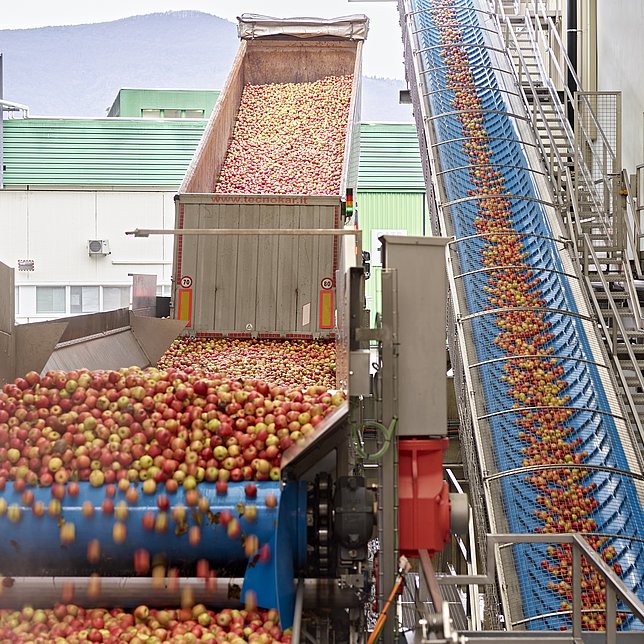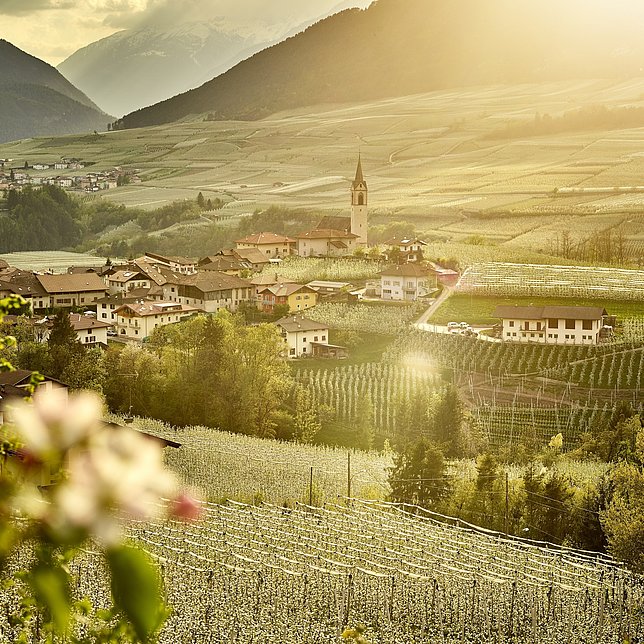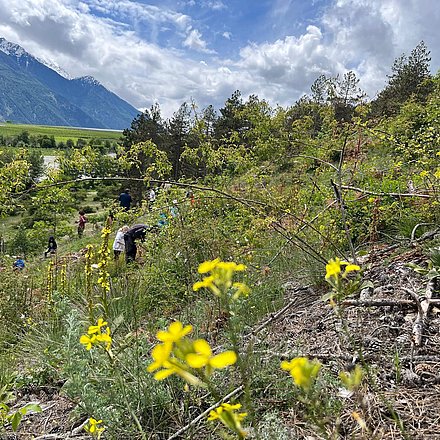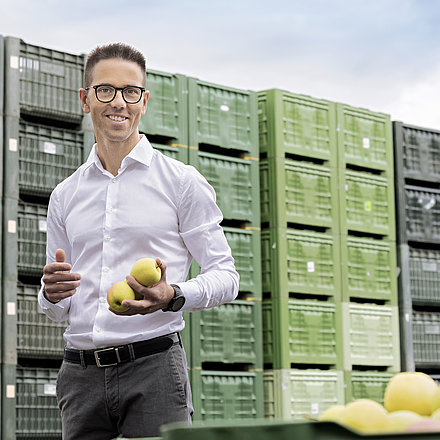Water
Demand-oriented and water-saving irrigation is the solution
Drought and water scarcity are a major challenge for our producers, as water is vital for apples to grow. The Vinschgau Valley, for example, is the driest valley in the Alps: here the mean annual precipitation is only 500 mm per square metre. The local producers therefore rely on resource-saving methods.
The focus on the most sparing use of water has been common practice in South Tyrolean and Trentino fruit farms for many years. The keyword is "demand-orienteded irrigation" - and this means using only as much water as is needed to run the farm. To do so, farmers have found innovative technical, digital and organisational solutions.
The best example is probably drip irrigation, which has replaced crown sprinkling in recent years. With this irrigation technique, outlets in the sprinkler hoses permit the release of only small, precise amounts of water near the trunk. In this way, the roots are sufficiently supplied with humidity; the tramline between the trees remains dry.
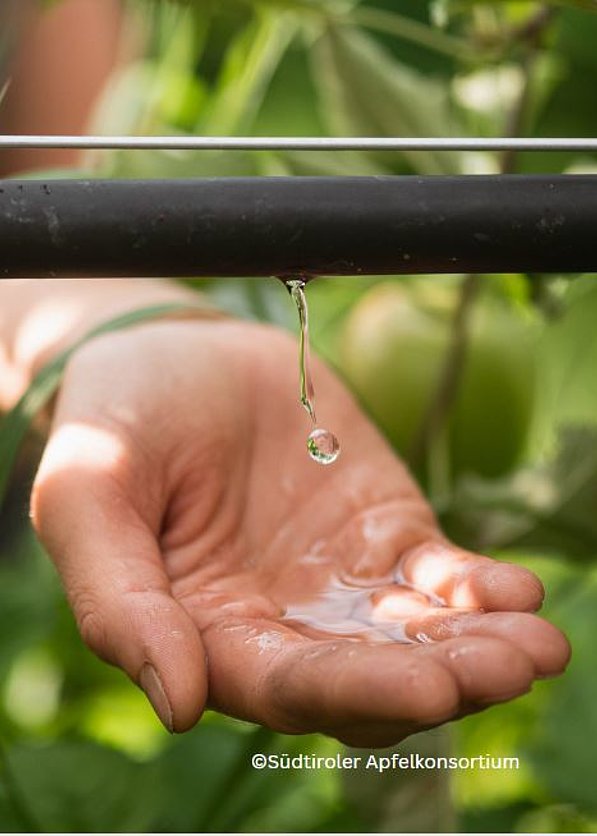
The applied innovations for careful water management go far beyond drip irrigation:
- Soil moisture sensors transmit data in real time via built-in radio modules - the producer receives the information via an app on the mobile phone and can adjust the water output to the effective demand.
- In the Smart Land project, tensiometers were link soil moisture and valve control. The pilot project has resulted in significant water savings of between 30 and 40% - while maintaining the quality of the fruit.
- Producers can calculate the climatic water balance with an online programme of the Advisory Council for fruit and wine growing. The programme is fed with weather data from various weather stations. Thus, the actual evaporation in an orchard is calculated (precipitation is taken into account). Targeted irrigation compensates for any water deficit.
There has always been a high level of sensitivity to the issue of water: both rainfall and irrigation amounts must be recorded in the producers' farm files.
The climate will continue to change and with it, dry periods will occur more frequently in the future. The next steps in water saving will therefore include the creation of reservoirs to store water for particularly dry periods.


